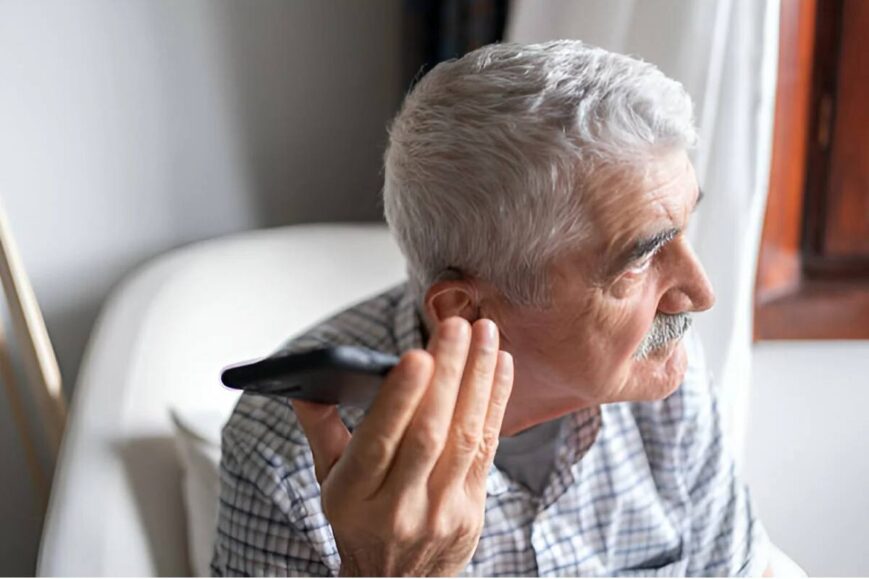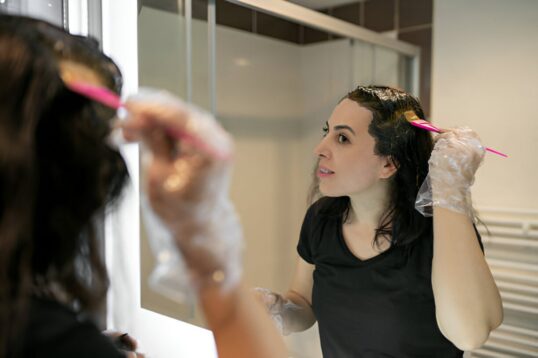How to Address Early Signs of Hearing Loss Before They Get Worse
Hearing loss is a gradual process that often sneaks up on us without warning. For many people, the early signs are subtle, like missing words in conversations or needing to turn the TV up a little louder. Recognising these signs and taking prompt action is essential to prevent further deterioration and to maintain your quality of life. This guide explores the steps you can take to address the early signs of hearing loss before they get worse.
Recognise the Early Signs of Hearing Loss
The first step in managing hearing loss is recognising the initial symptoms. Early intervention can significantly improve outcomes and prevent further complications.
-
Common Symptoms to Look Out For
Early signs of hearing loss can be subtle and easy to dismiss. Common symptoms include difficulty understanding conversations in noisy environments, frequently asking others to repeat themselves, turning up the volume on the TV or radio, and struggling to hear phone calls. You may also notice that voices sound muffled or that high-pitched sounds are harder to hear.
-
Understand the Importance of Early Action
If you’re experiencing any of these symptoms, it’s crucial to take them seriously. Delaying action can lead to worsening hearing loss and negatively impact your social interactions, mental health, and overall quality of life. Getting professional help, such as booking hearing tests Marrickville or consulting with a hearing specialist, is a proactive step that can provide clarity on your situation.
Schedule a Professional Hearing Test
A hearing test is the most reliable way to assess your hearing health. It helps identify the extent of your hearing loss and guides you towards the appropriate course of action.
-
Why a Hearing Test is Crucial
Hearing tests are comprehensive evaluations conducted by audiologists or hearing specialists. They measure your ability to hear different pitches and volumes, providing a clear picture of your hearing health. A professional hearing test can help detect early signs of hearing loss and rule out temporary issues like earwax buildup or infections.
-
Choosing the Right Hearing Specialist
It’s essential to choose a qualified and experienced hearing specialist. Look for professionals in reputable clinics who offer comprehensive services, from hearing assessments to hearing aid fittings. For example, if you’re in or around Marrickville, finding a reliable provider for hearing tests can give you confidence in getting the right care and guidance.
Understand the Causes of Hearing Loss
Understanding the potential causes of hearing loss can help you make informed decisions and prevent further damage.
-
Age-Related Hearing Loss
One of the most common causes of hearing loss is presbycusis, or age-related hearing loss. This type of hearing loss occurs gradually over time and usually affects both ears. While it cannot be reversed, early intervention with hearing aids or assistive listening devices can improve your ability to communicate effectively.
-
Noise-Induced Hearing Loss
Exposure to loud noises is another leading cause of hearing loss. Whether it’s from noisy work environments, concerts, or listening to music at high volumes, prolonged exposure to loud sounds can damage the sensitive hair cells in the inner ear. Taking steps to limit your exposure to loud noises can help protect your hearing in the long run.
-
Other Contributing Factors
Other causes of hearing loss include ear infections, injuries, genetic factors, and certain medications. If you suspect any of these factors are contributing to your hearing issues, consult a healthcare professional to get a comprehensive evaluation and advice on preventive measures.
Take Preventive Measures to Protect Your Hearing
Preventing further hearing loss is key to maintaining your auditory health. Simple lifestyle changes can go a long way in protecting your ears.
-
Limit Exposure to Loud Noises
One of the most effective ways to protect your hearing is to limit exposure to loud noises. If you work in a noisy environment, wear ear protection such as earplugs or noise-cancelling earmuffs. When listening to music or watching videos with headphones, follow the 60/60 rule: keep the volume at no more than 60% and limit listening time to 60 minutes at a stretch.
-
Use Hearing Protection in Noisy Environments
If you frequently attend concerts, sporting events, or work in loud settings, consider investing in custom-moulded earplugs or high-quality noise-cancelling headphones. These protective measures can reduce the risk of noise-induced hearing loss while allowing you to enjoy the activities you love.
Consider Treatment Options Early
If your hearing test reveals signs of hearing loss, it’s essential to consider treatment options early. Addressing hearing loss at an early stage can help you maintain a high quality of life.
-
Hearing Aids and Assistive Listening Devices
Hearing aids are a common and effective solution for early-stage hearing loss. Modern hearing aids come in various styles and offer features like Bluetooth connectivity, noise reduction, and rechargeable batteries. An audiologist can help you choose the right hearing aid based on your lifestyle and hearing needs.
-
Medical Treatments for Temporary Issues
If your hearing loss is due to temporary issues like earwax buildup, infections, or fluid in the ear, your healthcare provider may recommend treatments such as ear drops, professional earwax removal, or antibiotics. Addressing these issues promptly can restore normal hearing and prevent further complications.
Stay Informed and Monitor Your Hearing
Hearing loss can progress gradually, so it’s essential to stay informed and monitor your hearing health regularly.
-
Schedule Regular Hearing Check-Ups
Just like regular eye exams or dental check-ups, regular hearing tests are essential for maintaining good auditory health. Schedule an annual hearing test, or more frequently if you’re experiencing symptoms or have a history of hearing issues. Regular check-ups allow you to track changes and adjust your treatment plan as needed.
-
Keep a Hearing Journal
If you’re noticing changes in your hearing, keeping a hearing journal can help you track symptoms and identify patterns. Record instances when you struggle to hear or understand conversations, and note any changes in your hearing over time. Sharing this information with your audiologist can provide valuable insights into your condition.
Address the Emotional Impact of Hearing Loss
Hearing loss can be emotionally challenging, especially if it affects your ability to communicate effectively. Acknowledging these challenges and seeking support is essential for maintaining your mental and emotional well-being.
-
Communicate with Loved Ones
Let your friends and family know about the changes in your hearing. They can provide valuable support and help you navigate social situations more comfortably. Being open about your hearing challenges can also encourage others to communicate more clearly and patiently with you.
-
Seek Emotional Support
Hearing loss can lead to feelings of frustration, isolation, and anxiety. If you’re struggling emotionally, consider joining a support group or speaking with a counsellor. Connecting with others who are experiencing similar challenges can provide comfort and encouragement.
Make Healthy Lifestyle Choices to Support Hearing Health
Good overall health can positively impact your hearing health. Simple lifestyle adjustments can help preserve your hearing and improve your well-being.
-
Eat a Balanced Diet
A healthy diet plays a vital role in maintaining hearing health. Nutrients like vitamins C and E, zinc, and magnesium have been linked to better hearing outcomes. Include foods like leafy greens, nuts, seeds, and citrus fruits in your diet to support your auditory system.
-
Stay Physically Active
Regular physical activity improves blood circulation, which is essential for maintaining healthy ears. Exercise can help reduce the risk of conditions like diabetes and high blood pressure, which can contribute to hearing loss.
Final Thoughts
Addressing the early signs of hearing loss is crucial to maintaining your hearing health and quality of life. Start by recognising the symptoms and scheduling a professional hearing test to get an accurate assessment. Reliable hearing tests or in your local area can help you identify and address hearing issues before they worsen.
By understanding the causes of hearing loss, taking preventive measures, and exploring treatment options, you can protect your hearing and enjoy clear communication and social interactions. Remember, your hearing health is a lifelong commitment. With the right approach and proactive steps, you can preserve your hearing and continue to enjoy life to the fullest.


